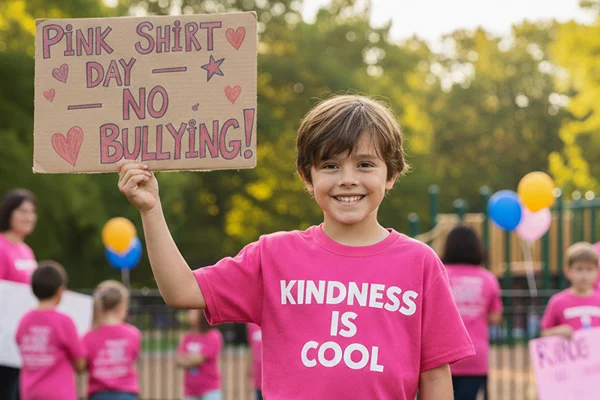The Value of Saying ‘No’ As a Parent
Parenting involves numerous decisions, but one of the hardest is knowing when to say “no.” It may seem small, but some parents feel pressured to say “yes” to keep the peace or avoid conflict, making setting firm boundaries uncomfortable. However, saying “no” is about guiding and teaching children how the world works.
When used wisely, “no” becomes a tool that helps them develop resilience, self-control and a healthy respect for limits. Saying “no” isn’t negative when it’s well-placed and for their benefit.
Why Parents Struggle to Say “No”
Modern parenting comes with unique pressures because social media often glamorizes indulgent lifestyles, leading parents to fear that saying “no” will make them seem strict or unkind. Others may have grown up in environments where the rules were overly rigid and try to be overly permissive with their little ones.
Many others often avoid saying “no” because of:
- Fear of conflict: Parents want to keep the household peaceful, so they say “yes” to prevent adverse reactions.
- Guilt: Adults feel like a kid’s happiness depends on constant agreement.
- Peer pressure: Most adults dislike children feeling left out or negatively compared to their friends.
- Time constraints: Parents might say “yes” to avoid the drawn-out negotiation or time in tantrums.
Short-term relief can cause long-term problems because kids who aren’t taught the value of “no” may develop unrealistic expectations and struggle to handle disappointment.
1. Builds Resilience
Handling rejections and setbacks in a safe and loving environment prepares little ones for the real world. When you say “no” and explain why, you’re guiding your child through disappointment, and they learn coping strategies:
- Alternative solutions: While “no” seems like the ultimate answer, sometimes parents and kids may agree upon alternative options. “No” doesn’t always mean the topic isn’t up for discussion — it means a specific method won’t work.
- Managing frustration: Your child may feel rejected or frustrated if you say “no” firmly. Guide them through the setback with love, and they will develop healthy coping mechanisms.
- Understanding impulse: Saying “no” teaches kids that what they want won’t be fulfilled now or may not be in the future. Offer advice on the situation and explain why you’ve said what you’ve said.
Children who regularly face limits develop better emotional regulation and problem-solving skills, which serve them for a lifetime.
2. Teaches Delayed Gratification
Delayed gratification is the self-control to wait for a greater reward. Stanford University professor Walter Mischel developed the marshmallow test in 1972 to teach kids that waiting now will lead to something better later. Saying “no” to specific requests helps your kid understand that patience can create more favorable outcomes, especially for unnecessary items or immediate indulgences:
- Screen time: Denying extra screen time reinforces the importance of sleep. Adequate sleep improves life satisfaction, attention, memory and physical health.
- Expensive toys: Not buying a toy immediately encourages them to save their allowance.
- Junk food: Opting to avoid junk food before dinner teaches self-control and health priorities.
3. Reinforces Family Values
Every family has a set of principles, whether stated or implied. Saying “no” to certain behaviors, requests or influences helps preserve the values you want to pass to the next generation, such as respect, kindness, honesty and responsibility:
- Respect: Saying “no” to disrespect and disrespectful language reinforces kindness.
- Cheating on homework: Teaching children not to cheat in tests and homework supports integrity.
- Commitments: Not allowing them to skip commitments teaches them about loyalty and priorities.
Balancing “No” With “Yes”
Saying “no” should be balanced with occasional “yes.” The word “no” shouldn’t imply a strict adult who denies everything — it should reflect a parent who cares about their child’s well-being. Kids should also hear the word “yes” often enough to feel encouraged, supported and trusted. Say “yes” to activities that foster growth and independence.
Saying No With Purpose
Knowing when and how to “say” no is one of the most valuable tools a parent has because it protects, guides and strengthens children. They may not always see it immediately, but explaining why you said “no” will teach your little one patience, self-control, resilience and respect for limits. That doesn’t mean you’re showing less love — it shows you want the best for your kid.
 Author bio: Cora Gold is the Editor-in-Chief of women’s lifestyle magazine, Revivalist. She strives to live a happy and healthy life with her family by her side.
Author bio: Cora Gold is the Editor-in-Chief of women’s lifestyle magazine, Revivalist. She strives to live a happy and healthy life with her family by her side.
Follow Cora on Facebook and LinkedIn.






